- Home
- Linda Howard
Kill and Tell Page 9
Kill and Tell Read online
Page 9
"Would you mind if we got something to eat?" he asked in an easy tone. "I didn't get a chance to eat lunch." That was a lie, but so what, if it accomplished his purpose. In retrospect, he was angry with himself for missing the signs when she first walked into his office. She was brittle with stress, on the verge of shattering, and only her self-discipline held her together. He wanted to kick his own ass; he usually read people better than that.
"Eat?" Her tone was vague, as if she had only the faintest idea what the word meant. Then she visibly shook herself and said, "Of course, I don't mind."
"We'll pick up something from a drive-through. Do you like Mexican, hamburgers, fried chicken, red beans and rice, pizza—"
"Mexican is fine," she said, because it was the first thing he had listed.
A cop knew every restaurant in town, and he drove to a tiny, ramshackle place that had once been a barbecue hut. There were no tables inside, just the drive-up window through which the owner dispensed tasty burritos and enchiladas. Soon they were on their way again, and he watched the color seep into her face as she slowly chewed on a burrito.
"How long is the drive?" she asked.
"About half an hour, in traffic." A half-smile quirked the corners of his mouth. "I could put the blue light on the dash, but I try not to use it unless I'm hungry, or really need a bathroom."
A startled little laugh spurted out of her. She covered her mouth with her hand, blinking as if she couldn't believe he'd actually joked with her, and she had laughed in any case. Those big dark eyes were owlish with surprise.
Because of those eyes, he decided to push it a little further. "You'll notice that I cleaned up my language in deference to you, instead of saying something about really needing to take a piss."
She laughed again and looked just as startled as she had the first time. "Ah… yes, I noticed," she managed to say. "Thank you."
Marc veiled his satisfaction. That harmless, teasing little exchange had firmly shifted their relationship from strictly business to subtly personal, relaxing her. She needed to relax; from the looks of her, she needed to sleep. When she had finished eating the burrito, he took the wrapper from her, brushing her fingers in the process, and stuffed it in the bag with his own discarded wrapper. "Why don't you lean back and close your eyes until we get there?"
"I'm afraid I'll go to sleep if I do." She watched the traffic. "I work third shift, so I—"
She stopped, and he continued the sentence. "So you hadn't had more than a couple of hours' sleep when I called." That explained a lot. She was truly exhausted.
"I returned your call when I got home, but it was too early for you to be in."
"Didn't the voice mail pick up?"
She shook her head. "No, and I let it ring for a long time."
He smothered a curse and reached for his cellular phone, jabbing in a number with his thumb. Karen watched nervously; she constantly saw patients who had been in car accidents because their attention wandered while talking on the phone while they were driving. Detective Chastain kept his eye on the traffic and his left hand firm on the wheel. He was a very good driver, she thought, his driving style so smooth she scarcely noticed how fast they were moving.
He broke the connection with another jab of his thumb. "Voice mail isn't working. Sorry about that. I'll check into it when we get back; a detective can't afford to be unreachable. In the meantime, grab a nap if you want. I'll wake you up when we get there."
She wanted to refuse, but she was too tired, and the temptation too irresistible. She leaned her head back on the headrest of the seat and closed her eyes against the late-afternoon sun, which was glaring through the windshield straight into her eyes. Cold air poured out of the air-conditioning vents, though, washing over her wrists and throat, and she felt her tight muscles slowly ease.
Sleep evaded her, but still it felt good to rest. Though she had been braced to endure the identification process, she hadn't expected it to be so difficult. Surely the years of separation and the lifetime of desertion and broken promises should have given her as much emotional detachment as if she had been identifying, say, a neighbor. It hadn't worked that way.
Though she hadn't seen Dexter in several years, she had recognized him immediately, without a single doubt. His hair had grayed more, but his face, which should have been craggier, had been smoothed by death. She had seen that before, as if the end of life erased some of the lines it had worn into the flesh, giving death a peaceful mien. His broken nose hadn't changed, still listing slightly to the right. That was his jaw, long and narrow, and the straight line of his brows. There were the deep-set eyes and high cheekbones she had inherited, as well as the tapering fingers.
The neat hole in his forehead was new.
She had tried to look at it clinically, but everything in her had recoiled. She had wanted to bolt from her chair, get out of that room, go somewhere, anywhere. Instead, she had clenched her hands hard enough to dig her nails into her palms and forced herself to speak calmly. She had hoped identifying him would bring the session to an end, but instead, the doctor continued running the videotape, making comments in a dry monotone.
Thank God Detective Chastain had stopped him. The tape couldn't have gone on more than a couple of minutes, but it had felt like hours to her. She had been frozen in her seat, unable to speak or move, until Chastain broke the spell by speaking. Dizzied by a flood of relief, she had actually leaned toward him; she hadn't been aware of swaying, but suddenly his face was much closer, his arms opened to catch her if she toppled out of the chair. After she had almost fainted in his office, he apparently wasn't taking any chances. Embarrassed, she had scrambled to her feet to show him she was perfectly all right.
He must not have been convinced, though, since he had poured yet another soft drink down her. She wondered if she had completely misread him before, if her own frazzled state had led her to see dislike where none had existed, because now he seemed like a perfectly nice man. If he disliked her, he was hiding it well now, and she was so tired she didn't care. She had needed to eat, and she needed to sleep. Tomorrow, after she had done both, she would be her old self again, but for now she was grateful for Chastain's help.
Burying Dexter here was the most logical thing to do, until she could get everything arranged back home. She supposed there were places where his body could be stored, but whatever Dexter's failings, and they had been many, he had still been a person, a man, a husband, and a father, not just a lump of dead flesh. He deserved the ritual of a funeral, the prayers said over his remains.
She felt a sense of relief and knew she was doing the right thing.
The detective's radio crackled, rousing her from her drifting, half-asleep reverie, though she didn't open her eyes. He spoke quietly into the radio, and it was like hearing his voice again for the first time. She didn't notice his voice as much when she was looking at him, she realized; he was a physically compelling man, not so much because of his looks as because of the forcefulness of his character. He controlled his intensity, but it was revealed in those narrow, glittering eyes.
Now, though, his voice poured over her like dark honey. She didn't listen to the words, just the tone. The slur of his drawl was relaxing, as if there was no hurry to go anywhere or do anything. The way he said "where" gave the word two, perhaps three, syllables.
If he took as much time making love as he did talking, he must be—The sexual thought shocked her, and her eyes flared open. She didn't dare glance at him, though she was abruptly, acutely aware of him sitting no more than a foot away.
Her cheeks felt hot. Where had that thought come from, and now, of all times? She wasn't in the habit of speculating about a man's sexual skills. She wasn't in the habit of speculating about men, period. In her view, sexual freedom was stupid from the beginning, and now it was dangerous as well. She had never dated much, and not at all since Jeanette's death.
The truth was, she had always avoided getting emotionally involved with a man because she had
n't trusted any of them. She had been afraid to risk her heart the way her mother had done; she didn't want to waste her life loving a man who never returned that love. Instead, she had been wasting her life not loving a man at all.
She felt stupid and angry at herself. All men weren't alike; she knew that. Yes, her father had abandoned them, but she also knew men who loved their wives and families, who were faithful and dependable. But emotionally she hadn't moved beyond the quiet fear and desperation of her childhood. Only yesterday… no, this morning—God, the day felt as if it had been a year long, and it wasn't over yet—she had decided not to let the past drag her down. She had started making plans for the apartment, for her career, but those plans hadn't included a man.
How dumb could she be? Why hadn't she seen this before? She refused to cheat herself out of a husband, a family, just because of her father's miserable example. When this was over and she was home again, she would start accepting some of those invitations that occasionally came her way. She knew some nice men, and it was time to give one of them a chance to be more than just a casual friend.
In retrospect, she was glad she'd had such a spicy little thought about Detective Chastain, because it had sparked that burst of self-examination. And he probably was good in bed, she thought, feeling defiant. Whatever his personal opinion of her, he was going out of his way to smooth the path for her. One of her friends on the surgical floor, Piper Lloyd, said you could always tell if a man was a good lover or not just by watching him at work. Some of the male doctors—okay, most of the male doctors—thought they were God's gift to women, but according to Piper's theory, they were too arrogant and in too much of a hurry. If they didn't pay attention to their patients, they weren't likely to pay attention to a lover.
Piper would approve of the detective, Karen thought drowsily. She would already be batting her eyes at him and fluffing her cap of black curls, but then Piper was a battle-scarred veteran of the love wars. She was careful about sex but not shy about going after what she wanted.
Karen wasn't anywhere in Piper's league. Just dating occasionally, giving a guy a chance, would be a big step for her.
"Are you married?" Her eyes popped open when she heard the words come out of her mouth. She hadn't meant to say that; she hadn't intended to say anything at all, because it had felt too good to sit there with her eyes closed. Instead of looking at him, she stared at the passing scenery, where Burger Kings had given way to trees and grass as they left the city behind.
"No, never have been," he replied, his tone easy, surprising her. "How about you?"
"No, I—no." She had started to go into a long explanation about being too busy but decided to leave the answer as it stood. She hadn't been too busy, she had been too wary.
"Engaged?"
Well, one nosy question deserved another, she thought. "No."
"I was, once, but we both thought better of it." He flashed her an oddly veiled look. "Cops have the highest divorce rate in the country. Some women can't handle kissing their husbands good-bye in the mornings, knowing it might be the last time."
Karen clucked her tongue, irrationally amused instead of sympathetic. "Shallow," she pronounced in judgment. "Imagine being upset over a little thing like that."
A quick grin lightened his expression. He had what she thought of as the typical cop look, slightly remote, definitely cynical. The military-short black hair made him look even harder, so the flicker of amusement was as brilliant as a jag of lightning in a sullen sky.
"You could marry another cop," she suggested.
He grunted as he turned on his left signal, slowing as he approached an intersection, then taking a secondary road. "Yeah. Like you'd marry a doctor or another nurse."
She made a face. Some people married within the profession and made it work, but Karen wanted some freedom from the hospital. She immersed herself in the work while she was there, and she loved her job, but she didn't want to take it home with her.
"What type of nursing do you do?"
She gave him points for actually knowing there were different types. "I work on a hospital surgical floor, but I'm thinking about going back to school and getting my master's, maybe specializing in trauma."
Saying the words aloud, however, seemed to solidify them, and she knew she was going to do it.
One eyebrow quirked. "Isn't that like ditching a desk job for front-line duty?"
"You're in the trenches yourself," she pointed out. "Besides, I want to know more, do more." She tucked a curve of hair behind her ear, half turning toward him, her normally serious expression bright with intensity. "I want to know what the latest procedures are, the newest drugs and treatments. I don't want to change a surgical dressing, I want to apply the pressure that stops the bleeding." She didn't know why she was telling him, a virtual stranger, all of this, but there was something about him that made it easy to talk. Odd, because they certainly hadn't started off in a buddy-buddy mode. Maybe it was because he seemed really interested, or maybe it was just a relief to get her mind off Dexter. Maybe she was punch-drunk with fatigue or riding a sugar high from all the soft drinks he had poured down her.
He pulled into the parking lot of a small country church, empty and dozing in the fierce afternoon heat. To the side, beneath the sheltering limbs of massive live oaks, was a well-tended cemetery. Karen looked at the graves and felt her insides tighten again. She had managed to forget for a few minutes, but the respite was over. She squared her shoulders and got out of the car.
"Someone will be here in a few minutes," Chastain said, slipping on a pair of sunglasses as he walked beside her toward the cemetery. "If you like the plots, you can do the paperwork this afternoon."
She drew in the thick, heavy air, feeling as if there wasn't enough oxygen in it. She was already dewed with sweat, and she thought longingly of another one of those icy soft drinks, sugar overload or no. Chickens cooked at a lower temperature than this. She was at least half done herself.
Chastain's hand settled on her back again, as hot as a brand. This wasn't real, she thought, staring at the fuzzy tangle of Spanish moss draped from the trees, swaying in a nonexistent breeze. Just this morning, she had been sleeping in her darkened, air-conditioned bedroom. Now she was roasting in New Orleans, picking out a burial plot for the father she hadn't seen in years until the ME had popped in a video of him on an autopsy slab, and she was being baby-sat by a tough-looking cop who didn't like her but who, for reasons of his own, was being very helpful.
No, it wasn't real. It was a nightmare, but nightmares, like all dreams, eventually came to an end.
Langley, Virginia
Franklin Vinay, the deputy director of operations, habitually worked late. He enjoyed the hours at his desk when his staff had gone home, the phone mostly stopped ringing, the demands on his time lightened. It was then that he plowed through the mountain of papers that landed on his desk every day, trying to stay one step ahead of the country's adversaries—whoever the hell they were.
It had been easier during the Cold War; everything had been clear-cut, the enemy known. He was afraid the fragmented former Soviet Union was more dangerous now than it had been before, without experienced hands at the many helms. China worried the shit out of him, but the current administration was more interested in making money than in protecting the country's security. Any jackass with half a brain now could find out how to make a bomb, America's so-called allies were happily selling arms and technology to anyone who could raise the money, and military capability was at an all-time low. It was a recipe for disaster, and he spent the long hours at his desk trying to keep the mixture from boiling over.
A quiet knock on his door interrupted him, and he sighed, closing the file he was reading. "Come in."
He expected the door to be opened by a junior staffer pulling long hours, too, but instead, a familiar homely face poked into view. "Thought you'd still be here," Jess McPherson said, easing into the room and closing the door behind him. "I've got some bad ne
ws."
Jess and the DDO went back a long ways, so long that there was no formality between them. He knew the look on Jess's face, and his guts tightened. "What happened?"
"Rick Medina's dead. His body was found in Mississippi," McPherson folded his long, lanky body into a chair.
"Ah, shit." Profound sadness was in Vinay's voice. Rick Medina was a legend in CIA circles, but more than that, he had been a personal friend. There weren't many of the old group left; everyone now was into technology, forgetting that the best satellite and the best computer couldn't replace that most basic of sources, a man in place. Human intelligence, HUMINT, was at the core of every good decision Vinay had made. "What happened? Was he working?"
He hoped to hell not. Rick had never been regular CIA; instead, he had been a contract agent, which meant he regularly hired his services out to other customers, meaning other countries. With Rick, though, Vinay had always had faith none of his other jobs had jeopardized the security of his country. Other agents weren't as particular, but Rick Medina was, simply, a patriot. Then, too, there were other considerations.
"Nothing for us," McPherson said. "The buzz I'm getting was that he was handling something personal. The local cops have tagged it as a robbery/murder, but shit, I can't see Rick getting caught flat-footed by a punk with a cheap twenty-two."
"That's what killed him? A twenty-two?"
"According to the report. Two shots in the heart. A couple of kids found him in his car, hidden behind some bushes in an old abandoned quarry. His wallet was lying on the seat beside him, empty. Cash and credit cards gone."
"Convenient, for identification purposes." Vinay chewed on his lip. "Almost too convenient."

 Mr. Perfect
Mr. Perfect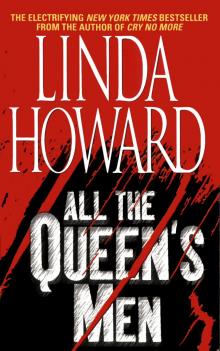 All the Queen's Men
All the Queen's Men Midnight Rainbow
Midnight Rainbow Diamond Bay
Diamond Bay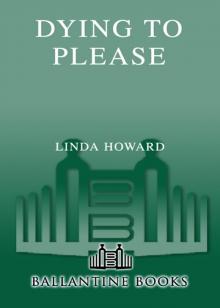 Dying to Please
Dying to Please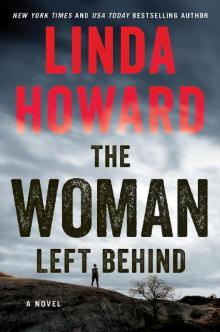 The Woman Left Behind
The Woman Left Behind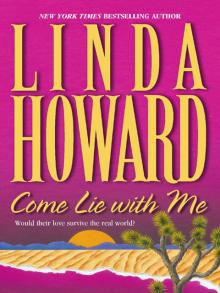 Come Lie With Me
Come Lie With Me Drop Dead Gorgeous
Drop Dead Gorgeous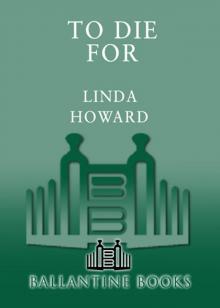 To Die For
To Die For Ice
Ice Overload
Overload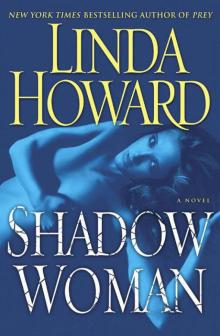 Shadow Woman
Shadow Woman Veil of Night
Veil of Night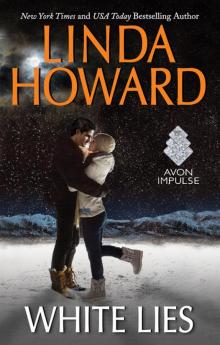 White Lies
White Lies Son of the Morning
Son of the Morning The Complete Mackenzies Collection
The Complete Mackenzies Collection Lake of Dreams
Lake of Dreams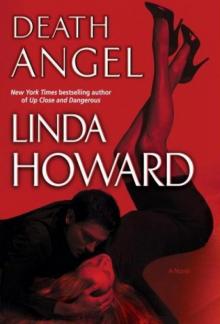 DeathAngel
DeathAngel Loving Evangeline
Loving Evangeline Burn
Burn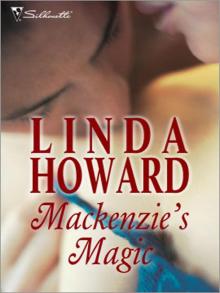 Mackenzie's Magic
Mackenzie's Magic Against the Rules
Against the Rules Burn: A Novel
Burn: A Novel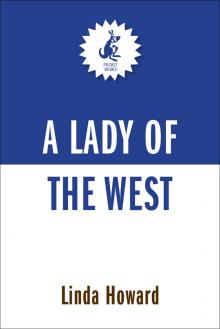 A Lady of the West
A Lady of the West Almost Forever
Almost Forever Open Season
Open Season Now You See Her
Now You See Her Prey
Prey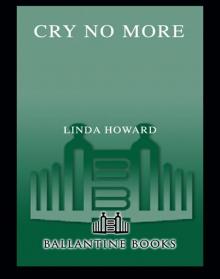 Cry No More
Cry No More Sarah's Child
Sarah's Child Angel Creek
Angel Creek Death Angel
Death Angel Kill and Tell
Kill and Tell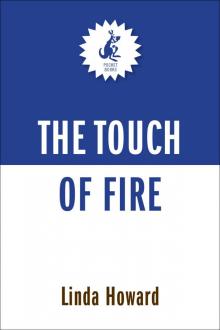 The Touch of Fire
The Touch of Fire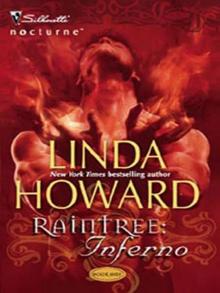 Raintree: Inferno
Raintree: Inferno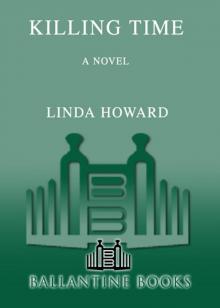 Killing Time
Killing Time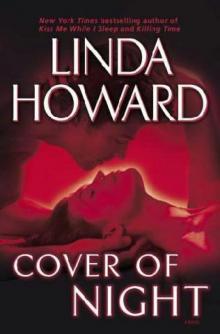 Cover of Night
Cover of Night Tears of the Renegade
Tears of the Renegade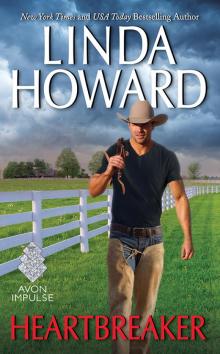 Heartbreaker
Heartbreaker The Cutting Edge
The Cutting Edge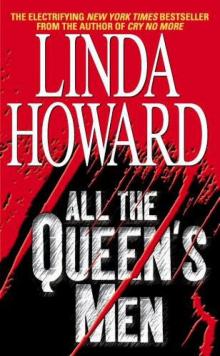 All The Queen's Men cs-2
All The Queen's Men cs-2 Veil of Night: A Novel
Veil of Night: A Novel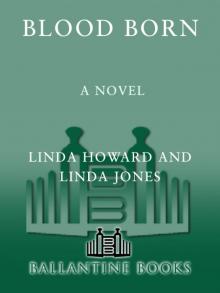 Blood Born
Blood Born The Complete Mackenzie Collection
The Complete Mackenzie Collection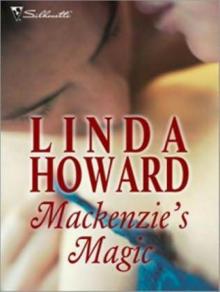 Mackenzie's Magic m-4
Mackenzie's Magic m-4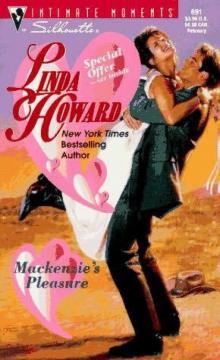 Mackenzie's Pleasure m-3
Mackenzie's Pleasure m-3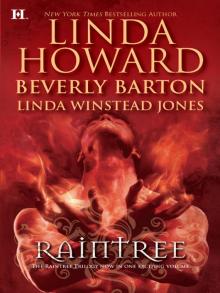 Raintree
Raintree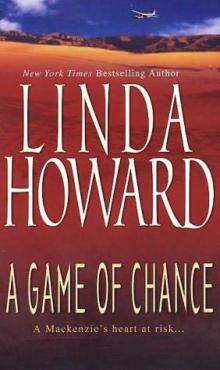 A Game Of Chance m-5
A Game Of Chance m-5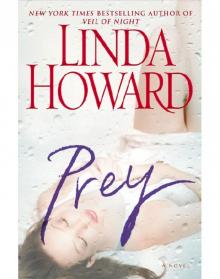 Prey: A Novel
Prey: A Novel Lethal Attraction: Against the RulesFatal Affair
Lethal Attraction: Against the RulesFatal Affair The Raintree Box Set: Raintree: InfernoRaintree: HauntedRaintree: Sanctuary
The Raintree Box Set: Raintree: InfernoRaintree: HauntedRaintree: Sanctuary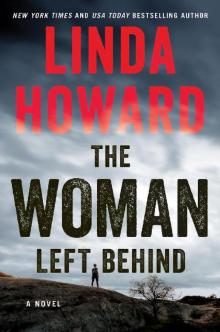 The Woman Left Behind: A Novel
The Woman Left Behind: A Novel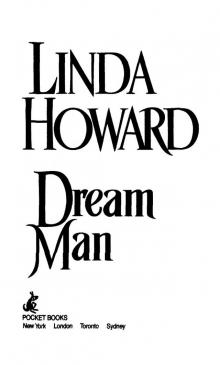 Dream Man
Dream Man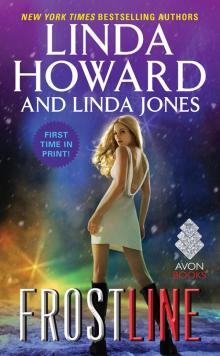 Frost Line
Frost Line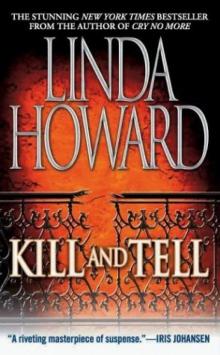 Kill and Tell cs-1
Kill and Tell cs-1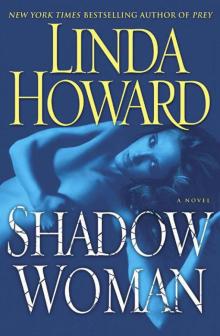 Shadow Woman: A Novel
Shadow Woman: A Novel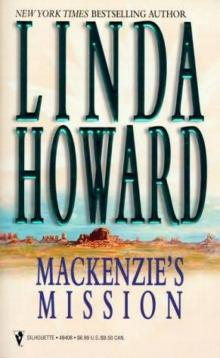 Mackenzie's Mission
Mackenzie's Mission Strangers in the Night
Strangers in the Night Running Blind
Running Blind